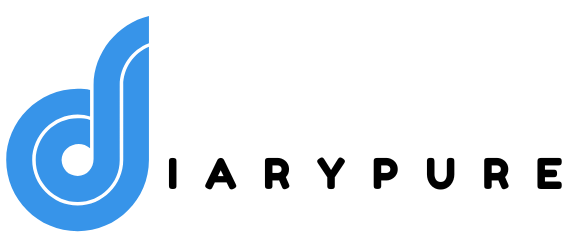External Solutions vs. Internal Nourishment
Whenever we think of beautiful healthy hair, the first image that often occurs to our mind are expensive shampoos, salon treatment and miracle serums but these external solutions can offer temporary glow and brightness,the real foundation of strong, vibrant hair beneath the surface of our body. Foods we eat and the vitamins we consume play a major role in hair health than most people realize. Just like any different elements of the frame, the hair also depends on a solid supply of nutrients to develop, repair and keep its natural beauty.
Table of Contents
Importance of Protein in Hair
Hair is in general a product of a protein referred to as keratin. This means that the building blocks of our strands come from the food we consume. If the necessary protein is missing in our diet, it can appear directly in our hair – through thinning, breakage or dull growth. Lean meat, eggs, fish, legumes and dairy provide high quality proteins our hair needs. Even those who follow a vegetarian or vegan diet can support hair health with plant-based sources such as lentils, tofu, quinoa and chickpeas.
The Role of Micronutrients and Biotin
Still, protein is just the beginning of the story. Micronutrients – small but significant amounts of vitamins and minerals – act as catalysts for hair growth and strength. Of those, biotin (vitamin B7) might be the first-class recognized for its role in hair maintenance. Foods together with almonds, candy potatoes and spinach include biotin, which enables convert nutrients into electricity and assist the production of keratin. A biotin deficiency can motivate brittle strands or even hair loss, making it an essential nutrient.
Vitamin D
Often related to daylight and bone electricity, vitamin D additionally stimulates hair follicles, encouraging new strands to develop. So, another essential participant in the hair health equation is vitamin D. Many people, especially individuals who stay in the cold or spend most of their time indoors, are afflicted by low stages of this nutrition. Fatty fish together with salmon, fortified milk and mushrooms can assist meat via weight-reduction plan, while slight sun exposure gives a natural increase.
Iron and Its Impact on Hair
Iron is just as important. It helps red blood cells deliver oxygen to all parts of the body, including the scalp and hair follicles. Without adequate iron, the hair can become thin, weak or stop growing entirely. Foods such as red meat, leafy vegetables and lentils are required to nourish the scalp and support hair growth. For girls, iron deficiency is a common and often hidden reason for hair issues.
Zinc, Omega-3s, and Antioxidants
Zinc is another mineral that is regularly disregarded, however it performs an critical function in tissue restore and the function of the oil glands around the hair follicles.Lack of zinc can cause hair fall and a dry, flaky scalp.Sesame , pumpkin seeds and whole grains are good sources of zinc that support hair flexibility and moisture balance.Equally important are omega-3 fatty acids, flax seeds, walnuts and healthful fat found in oily fish. These are anti-inflammatory and assist enhancing hair by means of including shine and elasticity. They additionally guide hair fitness through promoting hydration and lowering irritation, that can help save you some kinds of hair loss.
Even antioxidants, which protect the body from damage caused by unfastened radicals, play a role within the vitality of the hair. Vitamins consisting of vitamin C and E function guards towards oxidative pressure, a crucial contributor to premature growing older and hair loss. Vitamin C is likewise essential for collagen manufacturing – a protein that strengthens the hair and helps blood vessels that materials vitamins to hair.
Sunflower seeds, strawberries, bell paper and sunflower seeds are excellent sources of these antioxidants.
Folic Acid and Hydration
Besides pregnancy, folic acid helps your hair and head. Eat green veggies and beans for it – good for women’s hair. It helps your hair get strong from the roots. It also keeps your scalp in good shape. So, don’t forget your chana and whole wheat roti. They are beneficial for your hair.
Hydration also performs a diffused, but essential role in hair fitness. Water makes up a critical part of every thread, and staying hydrated helps preserve the moisture stability within the hair shaft, and forestalls dryness, crispiness and break up ends. Often ignored, just drinking enough water can increase the effect of nutrients-rich foods and support healthy, manageable hair.
Poor Diet and Hair Damage
It is also crucial to not forget how negative nutritional behavior can damage hair fitness. Highly processed meals, excessive sugar and dangerous fats can motivate irritation and imbalance of vitamins. These imbalances can interfere with the boom cycle of herbal hair, and make contributions to dullness, thinning or excessive dropping. Making conscious dietary choices isn’t always pretty much aesthetics; that is about preserving inner structures that assist our external look.
A Holistic Approach to Hair Health
In the world of instant results and attractive beauty products, it is easy to ignore the relationship between what we eat and how we look. But our hair is a direct reflection of our inner health. A nutritious diet not only supports a strong body and6 sharp mental clarity through the hair, skin and overall appearance. While external hair products can offer style and temporary glow, they cannot replace the nutrition that starts on your plate. The long-term beauty actually begins within.
For those looking for a more holistic approach to hair care, the focus on diet and vitamins is a transformative first step.In a severe haircare plan, food is not just fuel – this is the basis. By focusing on whole foods and proper nutrients, you support not only the appearance of your hair, but also its strength, growth and vitality.


